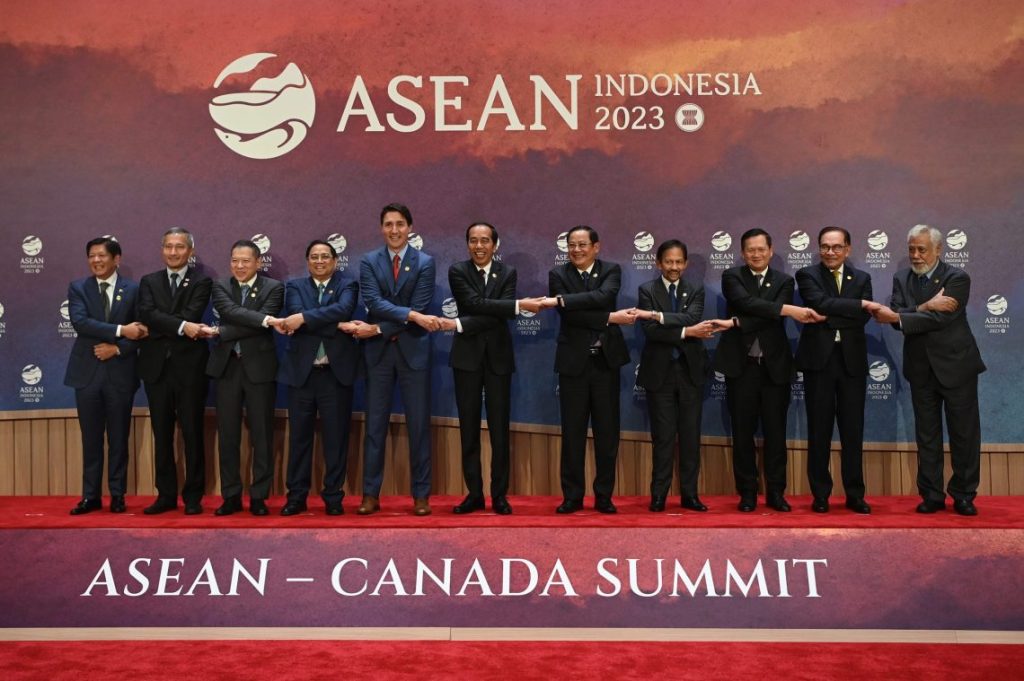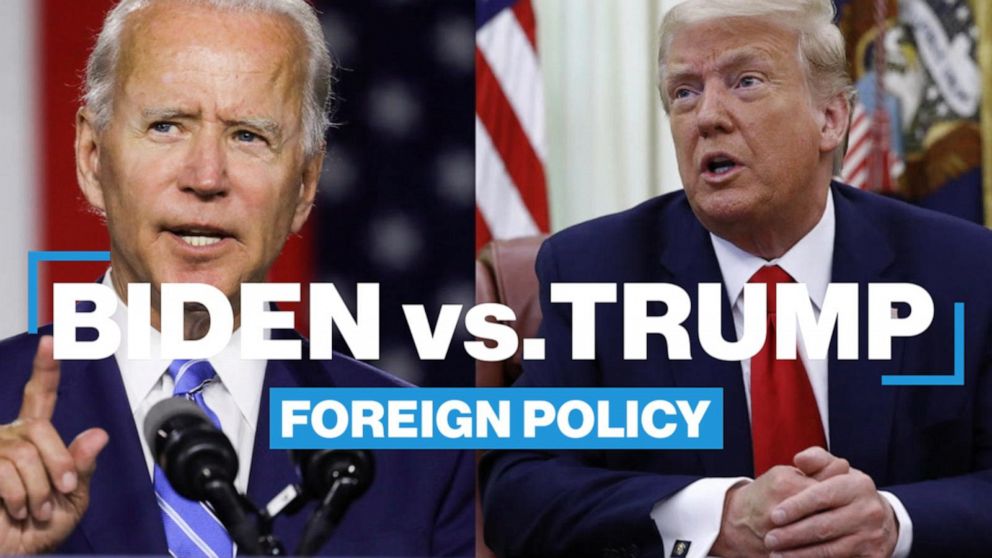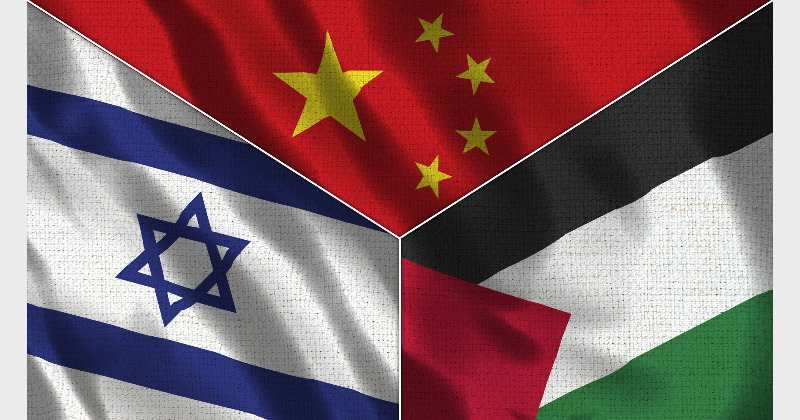Listen to the article
It has been a year since the Trudeau government released its Indo-Pacific Strategy (CIPS) on 27th November 2022. The strategy has five interconnected strategic objectives:
1) Promote peace, resilience, and security;
2) Expand trade, investment, and supply chain resilience;
3) Invest in and connect people;
4) Build a sustainable and green future; and
5) Canada as an active and engaged partner to the Indo-Pacific.
The five interconnected strategic objectives are seen to reflect the government’s domestic priorities including, indigenous reconciliation, the environment, and the promotion of progressive interpretations of diversity issues.
The challenges presented by authoritarian states such as China and Russia to the rules-based order, the spread of weapons of mass destruction, and the importance of diversification of trade and supply chains are also key features of the strategy.
We see these domestic priorities reflected in addressing injustices to First Nation peoples in the Indo-Pacific.
To illustrate, CIPS aims to support the economic empowerment of Indigenous Peoples through the implementation of the Indigenous Peoples Economic and Trade Cooperation Arrangement (IPETCA) in cooperation with existing partners: Australia, New Zealand, and Taiwan, and Indigenous Peoples from those participating economies.
Canada is creating new formulas for minilateral cooperation with like- minded partners to address domestic and Indo-Pacific indigenous peoples’ developmental challenges and injustices. This includes the Pacific Islands, who faced a legacy of colonial neglect of their indigenous people but also existential environmental challenges.
CIPS envisions reconciliation with First Nations, Inuit, and Métis peoples through enhanced indigenous exchanges with regional partners and will support education and skills development for indigenous youth, continue the implementation of the IPETCA, and support the implementation of the UN Declaration on the Rights of Indigenous Peoples.
These CIPS initiatives highlight Canada’s commitment to international institutions and the rules they have agreed upon; a rules-based order.
Placing an importance on diversity in governance, business, and society, the CIPS has outlined its commitment to enhanced support to women entrepreneurs to maximise opportunities in the Indo-Pacific by expanding international partnerships through the Women Entrepreneurship Strategy.
It has also committed to increasing feminist international assistance programming based on partner needs and helping to protect the most vulnerable populations and support work to achieve the Sustainable Development Goals.
Furthermore, CIPS support efforts toward democracy, inclusivity, accountable governance, and sustained economic growth, helping key countries in the region and working with development partners to reduce inequality and contribute to their economic prosperity.
While laudable at home, Canadian Indo-Pacific watchers of the CIPS have mixed views about the aforementioned elements of the strategy and how it is currently conceived.
On a positive note, they welcome this once in a generation strategy that resets Canada’s foreign policy priorities. By clearly recognising the economic opportunities that the Indo-Pacific region has and the importance of inculcating Canada into the region’s rule-making processes, the strategy ensures that Canada is at the table, not on the menu when it comes to the region’s development.
Importantly, the government has secured CAN $2.3 billion over the next 5 years to realise CIPS. This initial budget is what Foreign Minister Melanie Jolie has articulated is a down payment for a bigger ten-year commitment to the region.
This is where the praise comes to an end. Concerns about CIPS and Canadian foreign policy in general is that its position globally is in crisis, its credibility under question, and its strategy ill-suited for US-China strategic competition in the Indo- Pacific region.
Analysts in the security community are articulating the need for a sober assessment of Canadian national interests, its foreign policy approach, and a serious rethink of Canada’s place in the world with comparatively limited resources.
They argue that intentionally or not, Canada has manoeuvred itself into fraught relations with key countries in the Indo-Pacific, India and China.
An additional criticism is that hitherto successive Canadian governments made the error of seeing the Indo-Pacific/Asia-Pacific region through a China-centred rather than regionwide lens and that its CIPS is now overly focusing on ASEAN as the platform for creating a sustained Canadian footprint in the region.
In the case of Canada-Indian relations, the recent accusations towards the Indian Government about direct involvement in the killing of a Canadian citizen of Indian origin has shaken Ottawa’s foreign policy engagement with New Delhi.
Canada is now faced with the unenviable conundrum of how to implement its new Canada Indo-Pacific Strategy when relations with India are at record lows.
CIPS envisions Canada expanding its trade footprint within the Indo-Pacific region with an FTA with India to selectively diversify Canadian investments away from an increasingly disruptive China.
With trade negotiations suspended following these assassination accusations, it is difficult to foresee a trade deal coming to fruition any time soon.
It will also complicate Canada being able to find a place at the table of the Quadrilateral Security Dialogue (Quad), a minilateral that is gaining increased currency in the region for its efforts to contribute public goods to the region.
Canada-China relations are hardly in a better position. The hostage diplomacy that was practiced following the arrest of the Huawei executive Ms Meng Wanzhou, political interference allegations and threats to Canadian parliamentarians along with sanctions on Canadian products coming into China have painfully demonstrated that Canada’s long-term engagement with China was vulnerable to the weaponisation of supply chains, visiting scholars and businesspeople amongst other forms of coercion.
Relations with China remain frozen at the diplomatic level. Notwithstanding, we have witnessed an increasing number of dangerous manoeuvres by PLA naval and airships towards Canadian counterparts in the Taiwan Strait as Ottawa attempts to support the right to fly and sail in international waters.
Canada-ASEAN relations are mixed. Efforts to work towards a Canada- ASEAN FTA will be challenged by ASEAN’s heterogeneity and continued conflict in Myanmar. China’s structural slowdown will no doubt impact the region’s growth prospects raising questions as to whether overly prioritising ASEAN as a trade partner is a prudent choice in selectively diversifying away from China.
Despite these criticisms, the appointments of former Assistant Deputy Minister, Asia Pacific, Paul Thoppil as Indo-Pacific Trade Ambassador to spearhead Canada’s trade engagement in the region and Ian G. McKay, Ambassador of Canada to Japan and Special Envoy for the Indo–Pacific are seen as strong indications of Canada’s willingness to deploy experienced diplomats and bureaucrats to the region to build a sustainable and meaningful Canadian engagement in the Indo-Pacific.
Increasingly, many view Canada’s middle power identity, one that advocates for human rights, international law, human security – so-called normative paradigms – has resulted in isolation and questions over the relevance of Canada to our traditional allies.
It has raised questions about Canada’s ability to contribute to global governance and mitigating challenges such as non-traditional and traditional security challenges in the Indo-Pacific, the Middle East and in war zones such as the Ukraine and now the Middle East following Hamas’ terrorist attack on Israel.
This isolation and questions over relevance and reliability is well illustrated by Canada not being a second, or even a third choice for the Quad, AUKUS and the Indo-Pacific Economic Framework (IPEF).
Even the muted silence following the assassination of a Canadian citizen on Canadian soil by the Five Eyes members suggests that Canada is not seen as a priority partner in dealing with 21st century great power politics and the challenges associated with the US-China relationship but also Russia.
From former diplomats to practicing security researchers, the common lament is that Canada requires an earnest assessment of its resources, its place in the world, and its traditional middle power identity that was founded on a value-based approach to Canada engaging regionally and globally.
There is growing consensus that to be an effective, sustainable, and meaningful partner to our like-minded fraternity like the United States, Japan, South Korea, Australia and European states, an interest-based approach to middle power engagement will be critical to manage and secure our strategic autonomy and reliability within minilateral relationships such as the Quad, AUKUS, etc.
This middle power reset is a choice between relevance as a diplomatic actor on the international stage or middle power idealism leading to a diminished place in the world and an inability to secure Canadian national interests.
As part of this shift, many argue that Canada needs to jettison evangelistic approaches to foreign policy that focus on human rights, democracy promotion and cultural issues in lieu of a foreign policy deeply wedded to securing Canadian national interests in respective regions globally.
In the context of the Indo-Pacific, Canada’s national interests are at least threefold.
First, locking us into the rulemaking process of this rapidly evolving region.
This means being part of trade agreements like the CPTPP, trade frameworks such as IPEF, the regulation of AI and developing the technologies that will transform economies, the relationships between government and its citizens as well as the promotion of good governance.
Without being at the rules-setting table in the region and part of major trade agreements, Canada will not be able to deliver prosperity to Canadians.
Second, Canada has a vested interests in contributing to mitigating non- traditional security challenges such as climate change, transnational diseases, transnational illegal migration, piracy and cybersecurity challenges that are emanating from outlier states such as North Korea.
These non-traditional security challenges also emanate from revisionist states, terrorist groups and non-state actors that deploy disinformation proactively to sow discord, divide and to co-opt our democratic form of government and breakdown our rule-of law based system. At the forefront of these challenges we have China and Russia.
Third, traditional security is also a critical area for Canada, and it’s needed middle power reset in the Indo- Pacific. Sea lines of communication (SLOC) and airways are all being challenged by revisionist states.
Illegal entry into Air Defense Identification Zones (ADIZ), unsafe naval and air manoeuvres, and the use of grey zone and lawfare tactics are elevating the chance for conflict in the South China Sea, East China Sea and across the Taiwan Straits.
This could disrupt the more than the USD $5.5 trillion of imports/exports and energy resources that flow through the SLOC in the Indo-Pacific not to mention damage the economic power houses in the region.
Canada’s involvement in traditional security issues in the Indo-Pacific, the Ukraine, and the Middle East need a frank assessment of the realities of the resources that we can bring to bear to these regions.
Key questions that need to be addressed include how sustainable the provision of military resources to zones of conflict or instability is and if there are other means to provide capabilities to deal with security challenges in these regions?
Here, Canada has a demonstrated track record of working within NORAD, NATO and the NEON Operations in the Sea of Japan. These act as tools to enforce UN mandated sanctions evasion policies against North Korea.
These operations also demonstrate that Canada’s contributions to regional security challenges can be through UN mandated activities, cooperation with like-minded states or through the delivery of specific capabilities.
To illustrate, The Philippines signed an arrangement with Canada on the use of the latter’s Dark Vessel Detection System (DVD) by the Philippine National Coast Watch Center (NCWC) against illegal, unreported and unregulated fishing in the country’s exclusive economic zone.
Canada simply does not have the resources to manage a large military footprint in the Indo-Pacific, the Atlantic and a growing zone of threat in the Arctic. A capabilities-based approach to adding value to the Indo-Pacific region’s security challenges will necessarily mean participating as a plugin or secondary partner into existing minilateral relationships.
Key examples are the Quad and AUKUS as well as emerging minilateral relationships such as the Japan-ROK-US Camp David Principles-based minilateral or others.
As Canada reflects on how to manage the geopolitical realities of the US-China strategic competition, it will be critically important to work with partners and allies to lobby, insulate and influence an increasingly politically unstable United States such that their foreign policy reflects the interests of partners and allies of the United States.
Key partners will include Japan, South Korea, Australia, New Zealand, European countries, as well as others.
In dealing with China, and the growing track record of economic coercion, hostage diplomacy, disinformation and political influence tactics Canada will have to expand its cooperation with like-minded countries to insulate itself from the weaponisation of trade, supply chains, education, exchanges, etc.
At the same time, effective engagement with China will require a more disciplined, nuanced and interest-based approach to securing the real benefits that would flow from a strong, robust trade relationship but a relationship that is balanced and well diversified within the broader Indo-Pacific region.





Leave a comment